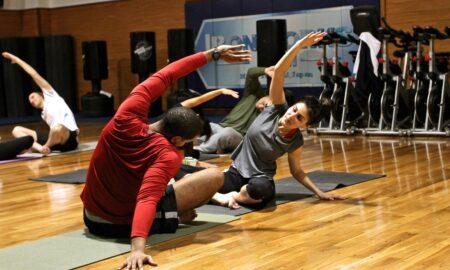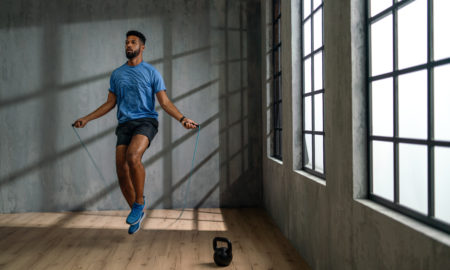When trainees are in their peak years of training, they can’t wait to have their next workout. It doesn’t occur to them that they could ever possibly train too much.
So the question is, Can we train too much? The answer is an overwhelming yes.
A well-known Russian Olympic weightlifting coach once said, “In the early stages all training is good.” Basically, athletes respond to a training load and become stronger. It doesn’t really matter if the training is as specific to their sport as some would like. It’s important to build a foundation of strength. That said, if they continue to train as they did in the beginning, they will reach a plateau, where they can no longer find a training stimulus to take them to the next level. For average trainees the plateau may be due to overtraining.
Being overtrained means that the amount of work you are performing—your training load—is exceeding your ability to recover. The next workout occurs before you are ready, and you drive your system down further. The result is that the weight on the bar or dumbbells stops going up regularly. That seems odd to most trainees. So they do what most coaches do—add more work, either more sets or new exercises, to try to gain more strength or size. Neither occurs, which is very frustrating. If fact, they may lose strength on various lifts. This is classic overtraining—training more not only fails to yield improvement but can even cause a regression.
A number of symptoms are associated with overtraining. The first was noted above—reduced performance, especially in the face of increased training loads. Other symptoms include loss of appetite, fatigue, insomnia or sleep disturbances, mood swings, depression, lack of desire to train, injuries and illnesses such as colds and flu. Some trainees will realize that they’re all related, and others will not connect the dots.
The usual response is one of frustration after new training programs, set-and-rep schemes and increased training loads fail to produce any kind of gain. So, what do trainees typically do at this point? They quit training for one to two weeks and return to the gym fully expecting their lifts to drop off significantly. Instead, amazingly, the lifts increase in weight, with poundages going up on bench presses, dumbbell rows and squats. Now they are really confused.
How can a break from training increase strength? The answer is actually very simple. When you’re overtrained, your body needs recovery or rest, not more work. Your central nervous system needs a break from continually being called upon to recruit more and more muscle fibers and to do so quickly to handle the progressively heavier weight.
Strength is actually a neurologic phenomenon. How many muscle fibers can be recruited and how quickly can they be recruited? That’s much more important than the hypertrophy, the increased diameter of the muscle fiber. Overtrained muscles are unable to recover from all of the work that they have been performing for workout after workout, especially if forced reps and negatives have been used, techniques that require extra recovery time. In addition, the mind needs a break from the ever-increasing workout intensity.
Overtraining has been studied extensively. Many overtrained male athletes who were monitored had lowered testosterone, while women had lower estrogen and elevated cortisol, the stress hormone that the medication cortisone is named after. Resting heart rates climb as the system is stressed during overtraining. Elite athletes can have resting heart rates of 84 beats or more the first thing in the morning while still lying in bed. Once they recover, their heart rates drop to 60 or below, which is where they should be.
If my description sounds like your training pattern and you’re frustrated by a lack of progress, take a break and redesign your training schedule to have more off days, fewer exercises and/or fewer sets so you can recover and keep gaining.
Train smart—then train hard.
—Joseph M. Horrigan
Editor’s note: Visit www.SoftTissueCenter.com for reprints of Horrigan’s past Sportsmedicine columns that have appeared in IRON MAN. You can order the book The 7-Minute Rotator Cuff Solution by Horrigan and Jerry Robinson from Home Gym Warehouse, (800) 447-0008 or at www.Home-Gym.com.





















You must be logged in to post a comment Login